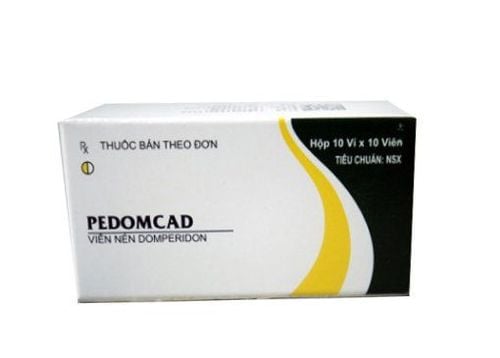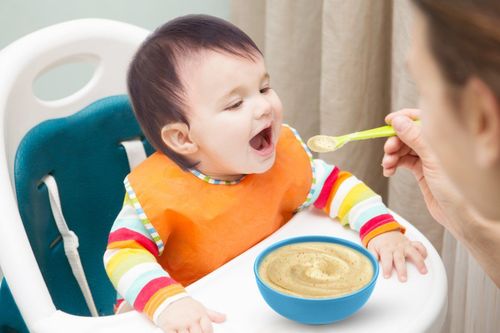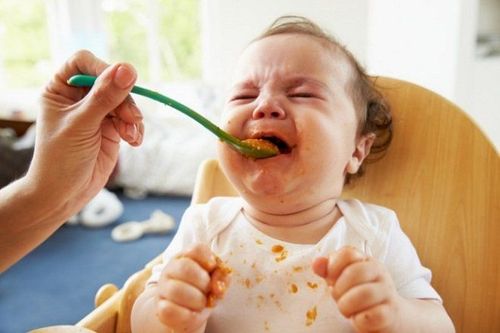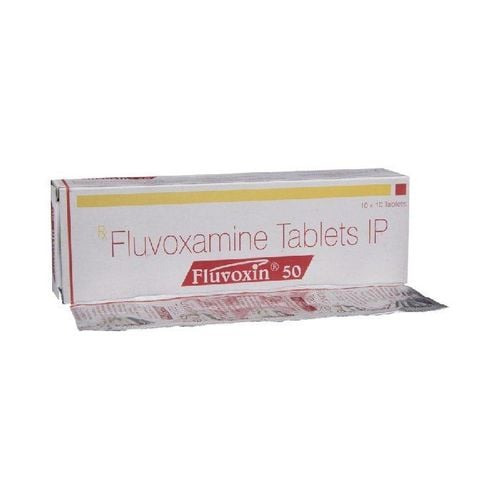This is an automatically translated article.
Children with anorexia will affect their health and development. Treatment of anorexia for children is a long-term process, requiring patience and coordination of many factors to stimulate anorexia children to regain their appetite when eating. When a child has anorexia, it is important to find out the cause in order to have an effective treatment for the child with anorexia.
1. Causes of anorexia in children
Anorexia is a common condition that can have many causes. Sometimes the reason is simply because the child does not like a certain food or because of psychological reasons that cause the child to have a negative view of the food. Determining the exact cause of anorexia in children will help find the right and effective treatment for anorexia children.1.1. Physiological anorexia
Usually occurs at the time of teething because the painful swollen gums make it difficult for children to chew food, learn to walk or talk. Hormonal changes that occur during puberty can also cause a child to experience a loss of appetite. This condition is called anorexia nervosa.
1.2. Anorexia due to psychology
Psychological problems can cause eating disorders in young children.
Being bullied by parents to force them to eat makes children not interested, even scared when it comes to meals. Children are under pressure about weight issues. Children have to endure feelings of discomfort and stress, causing them to develop anorexia mentality. For example, pressure in studies, exams, being sexually abused, being abused Children experiencing grief such as the divorce of their parents or the death of a family member can also cause children to lose their appetite.

Xác định nguyên nhân sẽ giúp điều trị biếng ăn cho trẻ đúng đắn và hiệu quả
1.3. Anorexia due to illness
Children have diseases caused by viral or bacterial infections such as tonsillitis, nasopharyngitis, otitis media, bronchitis, pneumonia, intestinal infections causing fever, cough, fatigue... leading to anorexia. At the same time, the infection causes the body to consume a large amount of vitamins and minerals, especially magnesium, iron, zinc, vitamin A, vitamin C and B vitamins, making children anorexic. Giving children antibiotics easily causes physical damage to the digestive system and intestinal bacteria disorder, leading to indigestion and abdominal distension, so they are increasingly anorexic. Children are undernourished (due to lack of nutrients) leading to malnutrition right from the womb. Such babies are often born prematurely or with low birth weight, as a result, babies are lazy to breastfeed right from the first days after birth. Children are anorexic due to inadequate and balanced diets, leading to a lack of protein, vitamin C, D, B vitamins, and micronutrients such as lysine, iron, zinc, etc. especially zinc deficiency makes children anorexia more serious. Children with digestive disorders, abdominal pain, malabsorption syndrome, nausea, diarrhea or constipation.
1.4. Anorexia due to bad diet or habits
Diet and bad habits that parents inadvertently create for children are the most common causes of anorexia in children.
Introduce solid foods too early, before 6 months of age. Still puree food even though the child is 2-3 years old. Choosing foods and preparing dishes are not attractive or suitable for children's age. Do not change the food often, but let the child eat some foods over and over again, causing a feeling of boredom for the child. The amount of food is too little or too much and the meal distribution is not reasonable. Feed your child at the wrong time or at the wrong time, for example when the child is still full. This causes children to form a bad impression of eating because they do not feel full or really hungry. For children, the real feeling of fullness and hunger is only when the child wants to eat on his own. Time each meal lasts too long for more than 30 minutes. Give children candy, soft drinks, and fast food so that children do not feel hungry when it comes to the main meal. Children hold food for a long time without chewing or swallowing. Children who eat while watching TV, phone or eating while playing with toys make it easier for parents to persuade children to eat and children will eat faster. This is absolutely not good for children because it makes them not focus on eating, not feel the taste of food and forget about cravings. Over time, this bad habit can make children picky eaters or anorexic. See now: How to know exactly if a child has anorexia or not?

Trẻ vừa ăn vừa xem tivi, điện thoại có thể làm trẻ kén ăn hoặc biếng ăn
2. How to treat children with anorexia
Treatment of anorexia for children is a long-term process, requiring patience and coordination of many factors to stimulate anorexia children to regain their appetite when eating. When a child has anorexia, it is important to find out the cause in order to have an effective treatment for the child with anorexia. Although the treatment process when children with anorexia will sometimes be difficult, parents need to understand the following principles to support treatment.
Right from the time you are a baby, you should eat a full range of nutrients. Breastfeed exclusively for the first 6 months and should continue to breastfeed until the baby is 24 months old. Because breast milk is the perfect and safe source of nutrition for the development of infants and young children, introduce solid foods at 6 months of age. Do not start introducing solid foods too early because the baby's digestive system is still weak and can't adapt. Feed your child all 4 important nutrient groups each day, including protein, carbohydrates, fats, vitamins and minerals. The ingredients need to be balanced, not too much, which can also make children anorexic. Give your child snacks with whey, yogurt, and cheese because these are foods that young children often like. Give your child a variety of fruits Give your child a variety of foods and change the dishes often to avoid boredom. It is necessary to prepare diverse, colorful and eye-catching dishes to stimulate anorexia children to regain their appetite. Learn and respect your child's eating preferences. Do not threaten or force the child to eat because it will make the child afraid of eating. If the child refuses, does not want to eat a new food, parents should not try to force it by all means, but instead try another time. Limit giving children fast food, sweets, and soft drinks, especially before meals. Children's meals should not last more than 30 minutes. If your child can handle or scoop food on his own, then let him eat it himself. Always encourage, motivate and praise your child, even if he eats only a small amount of food. Parents should develop a diet specifically for premature and low birth weight babies. During the treatment of infectious diseases, children need to be supplemented with vitamins such as vitamin A, vitamin B group vitamin C and minerals such as zinc, iron, and magnesium. Do not abuse antibiotics. Use only on children when prescribed by a doctor. Nutritional supplements should be consulted by a doctor before using for children. The improvement of children's symptoms of anorexia can take a long time, so nutritionists recommend parents to be calm and persistent when supplementing nutrients for children through eating or functional foods. In particular, the use of functional foods should choose those of natural origin that are easily absorbed, do not allow children to use many types at the same time or continuously change the types of functional foods. In the case of children with prolonged anorexia, malabsorption, and growth retardation, parents should supplement children with supportive products containing lysine, essential micro-minerals and vitamins such as zinc, chromium, selenium, and B vitamins. help meet the nutritional needs of children. At the same time, these essential vitamins also support digestion, enhance nutrient absorption, help improve anorexia, and help children eat well. Parents can simultaneously apply dietary supplements and functional foods derived from nature for easy absorption. The most important thing is that improving your baby's symptoms often takes a long time. Combining many types of functional foods at the same time or changing many types in a short time can make the baby's digestive system unable to adapt and completely not good. Therefore, parents must be really patient with their children and regularly visit the website vimec.com to update useful baby care information.













